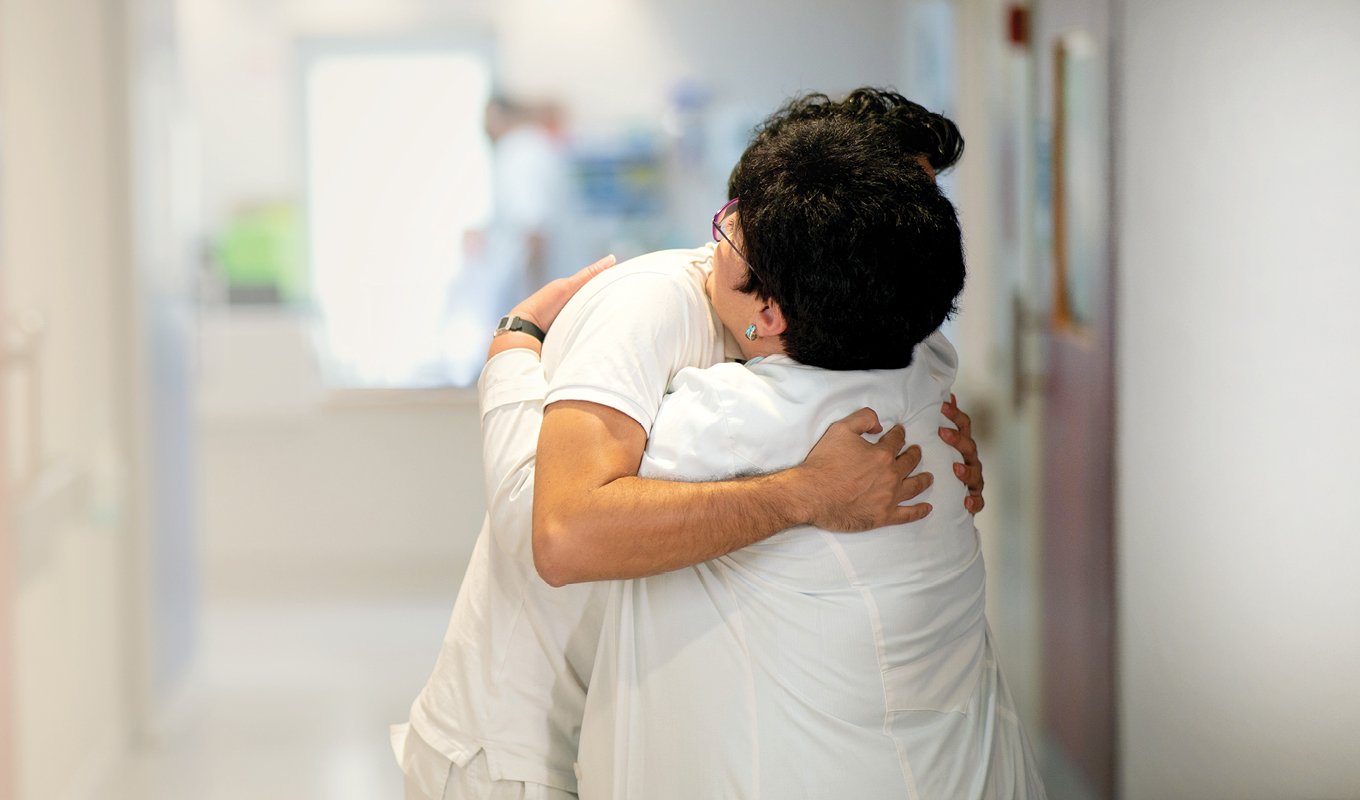Shuk Days
By Dina Kraft
In a tiny kitchen at a restaurant in the heart of Jerusalem’s storied open-air fruit and vegetable market called Machane Yehuda, Mahdi Martur is filling a bowl with steaming kubbe hamusta -- a Kurdish dish of rich lemon-flavored chicken broth with cumin-and-coriander-spiced beef dumplings. Michal Zakai rushes it to a waiting customer seated at one of the dozen packed tables at the kitchen’s doorstep and then returns for another order and then another from the industrial-sized aluminum pots laid out on hot plates. Inside those pots are flavor-bursting dishes like moussaka, mujadara (a Middle Eastern favorite of rice and lentils), okra, navy beans in a tomato sauce and schnitzel.
When the matzo balls run low – it’s Passover – and the crowds are especially thick because of the holiday – Michal rolls extra ones small and firm in perfect circular form. Michal, whose family immigrated to Israel from Iraq and Turkey, jokes that they are way better that way than the fluffy Ashkenazi ones. Mahdi, she jokes, has no patience for making them. He laughs and nods.
Both are Jerusalemites, born and raised. Michal is a Jewish Israeli and Mahdi a Palestinian Muslim, and together they are the joint forces behind the restaurant ShakShuk, a play on the words shakshuk a, a North African dish of eggs poached in tomato sauce, and shuk, the Hebrew word for market.
Michal is the owner, and Mahdi is the cook and her right-hand. And the two act like siblings, with lots of teasing and ribbing of one another. They say they feel like family to each other after five years working long hours closely together, relying on each other, reading each other’s moods, befriending each other’s families and listening to each other’s problems.
She calls him a brother, he calls her a sister.
Michal says Mahdi brings his whole heart to make the restaurant work.
“I feel that he is bringing to this place his heart,” she says.
Mahdi slept only about an hour the previous night getting everything ready. The only light on in the dark shuk overnight was at ShakShuk, with Mahdi inside whirling between pots and chopping boards, the aroma of fried onions and simmering sauces flavored with cinnamon and cardamom filling the air.
“I love this place. I love working here with her,” Mahdi says of Michal.
As the crowds grew the day I watched them in action, so did the stress. Customers were waiting to order, others asking to pay. All the while orders kept flying in and the two struggled to keep up, even with the extra help of Mahdi’s 20-year-old son, another waiter, and later in the day Michal’s two older children. But they remained calm, even finding time to laugh amid the demands.
And finally, at the end of the day as the sky again grew dark, the two sat down to “their” table for their end-of-day ritual in the corner of the open-air restaurant under a large awning and sprinkled with umbrellas: a cup of tea for her and thick, Arab-style coffee for him. Another hard-working day was behind them. And another awaited. But for now, there was this, the two of them sipping their hot drinks and exhaling.
Hadassah Highlight: Serving as a leading institution in Israel, Hadassah Medical Organization weaves into the narratives of both native Jerusalemites featured in this month’s episode. In between recordings for the episode, Mahdi, after finishing work for the day, went to visit his sister, who is currently being treated as a patient at Hadassah Hospital Ein Kerem. And Michal opened up about her four children, two of whom were born at Hadassah hospitals.
Go behind-the-scenes with host Dina Kraft: check out these photos from episode 9



.svg)


